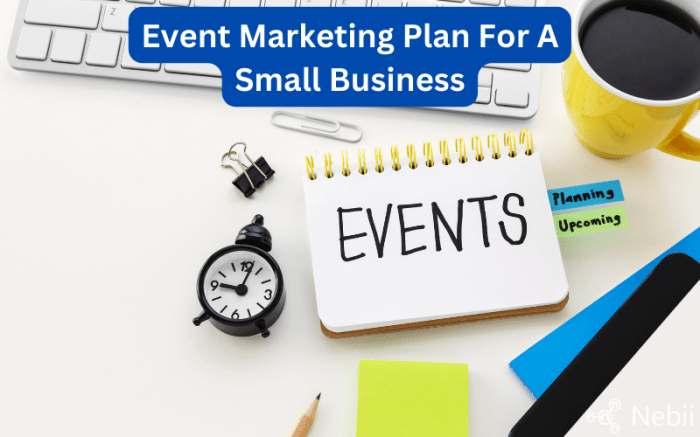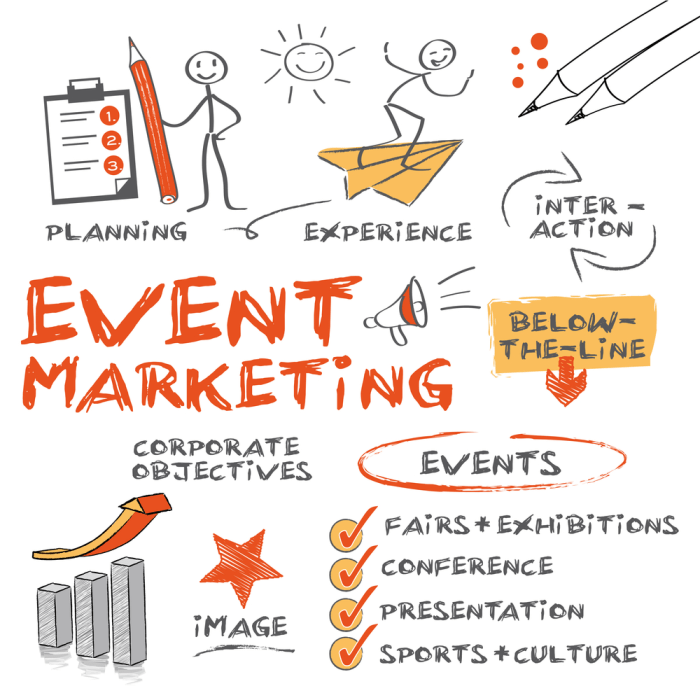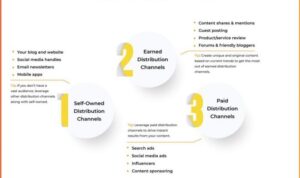Event Marketing for Small Businesses sets the stage for innovative strategies, effective tips, and inspiring success stories that drive small businesses towards growth and success.
As we delve into the world of event marketing, small businesses can unlock the potential to connect with their target audience in a meaningful and impactful way.
Importance of Event Marketing for Small Businesses

Event marketing is crucial for small businesses as it provides a unique opportunity to connect with customers on a personal level and create memorable experiences. By hosting events, small businesses can showcase their products or services, engage with their target audience, and build brand loyalty.
Effective Reach to Target Audience
Event marketing allows small businesses to reach their target audience effectively by providing a platform for direct interaction. Through events, businesses can gather valuable feedback, understand customer preferences, and tailor their offerings to meet the needs of their target market.
- Hosting a pop-up shop at a local event or festival can attract potential customers who may not have come across the business otherwise.
- Organizing workshops, seminars, or webinars related to the business niche can position the business as an industry expert and attract a specific target audience interested in the topic.
- Collaborating with influencers or local celebrities to host an event can help small businesses extend their reach and tap into new customer segments.
Examples of Successful Event Marketing Campaigns
“Small Business Saturday” by American Express is a prime example of a successful event marketing campaign for small businesses. By promoting a designated shopping day for supporting local businesses, American Express was able to create a nationwide movement that boosted sales for small enterprises.
- A local coffee shop hosting a weekly open mic night to attract a younger audience and create a vibrant community around their brand.
- A boutique clothing store organizing a fashion show featuring local designers to showcase their unique offerings and attract fashion-forward customers.
- A fitness studio partnering with a nutritionist to host a wellness seminar aimed at health-conscious individuals looking to improve their lifestyle.
Strategies for Successful Event Marketing
When it comes to event marketing for small businesses, having a solid strategy is key to standing out and making a lasting impression on your audience. Here are some tips to help you create a successful event marketing plan:
Setting Clear Goals and Objectives
In order to measure the success of your event marketing efforts, it’s crucial to establish clear goals and objectives from the start. Whether you’re aiming to increase brand awareness, generate leads, or drive sales, make sure your goals are specific, measurable, and achievable.
- Define your target audience and tailor your event to meet their needs and interests.
- Set a budget and allocate resources effectively to maximize ROI.
- Track key performance indicators (KPIs) such as attendance rates, social media engagement, and lead generation to evaluate the success of your event.
Innovative Ideas to Engage Your Audience
To make your event memorable and engaging for attendees, consider implementing some creative ideas that will set your business apart from the competition. Here are a few innovative suggestions:
- Host interactive workshops or hands-on demonstrations to provide value and educate your audience.
- Collaborate with influencers or industry experts to attract a larger audience and increase credibility.
- Utilize technology such as virtual reality experiences or live streaming to create a unique and immersive event experience.
Types of Events Suitable for Small Businesses: Event Marketing For Small Businesses
When it comes to marketing products or services, small businesses can benefit greatly from hosting various types of events. These events not only help in increasing brand awareness but also provide opportunities to engage with customers on a personal level.
Workshops
Workshops are a great way for small businesses to showcase their expertise and knowledge in a particular field. By organizing workshops related to their products or services, businesses can establish themselves as industry leaders and build credibility among their target audience.
Networking Events, Event Marketing for Small Businesses
Networking events offer small businesses the chance to connect with potential customers, partners, and industry influencers. These events provide a platform to build relationships, generate leads, and expand their professional network, ultimately leading to business growth and opportunities for collaboration.
Product Launches
Product launches are an exciting way for small businesses to introduce new products or services to the market. By hosting a launch event, businesses can create buzz, generate excitement, and attract media attention, which can help in driving sales and increasing brand visibility.
Pop-Up Shops
Pop-up shops are temporary retail spaces that allow small businesses to showcase their products in a physical setting. These events create a sense of urgency and exclusivity, encouraging customers to make impulse purchases and providing businesses with an opportunity to test new markets or locations.
Community Events
Small businesses can also benefit from participating in or hosting community events such as charity fundraisers, local fairs, or neighborhood gatherings. These events help in building goodwill, fostering relationships with the local community, and showcasing the business’s commitment to social responsibility.
Budgeting and Resource Allocation for Event Marketing

When it comes to event marketing for small businesses, budgeting and resource allocation are crucial aspects to consider. Effectively managing your budget and allocating resources efficiently can help maximize the impact of your event marketing efforts.
Effective Budgeting Strategies
Here are some guidance on how small businesses can budget effectively for event marketing initiatives:
- Set clear goals and objectives for your event to determine the necessary budget.
- Research and compare costs of venues, vendors, and promotional materials to make informed decisions.
- Allocate a specific portion of your overall marketing budget to event marketing to ensure adequate funds.
Resource Allocation Tips
Discuss ways to allocate resources efficiently to maximize the impact of event marketing efforts:
- Delegate tasks to team members based on their strengths and expertise to optimize resource allocation.
- Utilize technology and automation tools to streamline processes and reduce manual workload.
- Collaborate with partners or sponsors to share resources and reduce costs for hosting events.
Cost-Effective Event Hosting Strategies
Share cost-effective strategies for small businesses to host successful events within their budget:
- Consider hosting virtual events to save on venue rental and catering costs.
- Utilize social media and email marketing for promotional activities to reach a wider audience at a lower cost.
- Partner with other small businesses or local organizations to share resources and expand your event reach.
